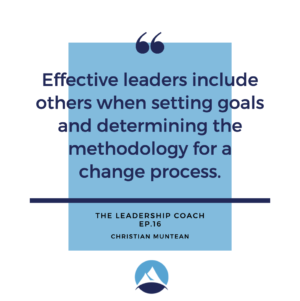How To Communicate To Your Team In A Crisis

 CONVID19 has created a kind of crisis that the world has never experienced before. I’ve spent most of the last week and a half helping leaders try to think through how they should respond to it.
CONVID19 has created a kind of crisis that the world has never experienced before. I’ve spent most of the last week and a half helping leaders try to think through how they should respond to it.
There is a large range of emotions and perspectives. I would say most leaders are concerned for their people and their organizations through this challenging time.
One of the primary issues that come up is communication. And rightly so. In uncertain and anxious times, good communication is critical.
What Good Crisis Communication Looks Like:
Primarily good crisis communication does two things. It’s clear and consistent. It reduces the noise and the static. It makes it easy for people to understand, gain perspective and find direction.
What People Need Most:
During a crisis, people tend to need two things: Information and empathy.
Some people lean more towards needing information. Information gives them a sense of control and peace.
Others need empathy. They need to know you understand how they are feeling and care. When they know that they’ve been heard and their experience is valued, it helps reduce their anxiety.
Ultimately, most people need both. But this is a very helpful filter to use when you are talking to people. Is this person best served with information and data? Or is this person best served if I take the time to listen, really understand where they are coming from and help them feel connected to?
When you do larger-scale communication it becomes important to try to communicate both.
Key Attributes of Crisis Communication:
- Be active. Don’t wait for people to come to you. Don’t wait until the last minute. Communication becomes even more important in times of crisis – make sure that you are ahead of the message. Rumors fly fast and distort quickly. You need to be faster and as accurate as you can.
- Communicate facts. Communicate as much as you can. Many leaders make the mistake of withholding information. This often leaves blanks in the story. People fill those blanks with whatever they imagine. Usually something negative.
- Address rumors and falsehoods. Don’t ignore rumors. Some people believe in them. They need to be addressed.
- People need hope. Frame facts with vision. People need to know what is going on but also what will happen. You may not know, but it is important to develop and communicate a positive vision for the future.
- Develop a clear and coherent message. Your messages should bring clarity not add to the confusion. The news might not be good, but adequate data and your sense of empathy should help mitigate the concern people feel.
- One, or few, spokespeople. Clearly define, and letter others know, who will deliver the messages. This helps limit rumors.
- Define how messages are delivered. What is the best way to reach your audience? What is most timely or convenient? How do you make sure that your key points have been received?
- Schedule updates. Routine creates security. No one should ask, “When will we here from them?” Everyone should know when the update will come, who will provide it and the medium it will be delivered through.
You Don’t Need to Know What Will Happen Next:
Don’t delay communication until you are sure of what is going on. That may never happen. It is sufficient to say, “This is what we know right now. This is what we don’t know. We’ll provide an update this afternoon at 4:30.”
Fast-changing Plans:
Sailing captains don’t decide that direction doesn’t matter just because they are in a storm and they have to tack back and forth. Don’t delay planning just because things are likely to change. Just make very short-range plans. Plan your steps if you can’t plan your years or quarters.
It will help you stay on focus as well as help your team for you to say, “This is the plan right now. This is what you can count on for the time being. We’ll update everyone Friday if there will be any changes.”
Make Your Decisions:
You have to make decisions without adequate information. Do the best you can and decide. Some of those decisions will be wrong. It’ll be ok. It’ll be better that you made the best decisions you could, quickly, then wait too long to make a perfect decision.
Leaders Step up, Decide and Communicate:
A crisis is one of those times where people need and want leadership. If you are in a leadership role, people are looking to you. They need you to step up, to be calm, to be objective, to care about them and provide hope and plan.
You may not always be feeling it. You may not always be sure of the direction or outcome. You may not be sure what to do next. But don’t let the fog of the future prevent you from providing leadership when your people may be needing it most.
Take good care,
Christian
Would you like my help for yourself, your team or board to get a clear vision of 2020? Don’t leave it to chance. Give me a call 907-522-7200 or e-mail me.
FREE TOOL: The Value Builder System
Are you curious about the value of your company? The Value Builder System™ is a 13-minute online questionnaire that evaluates your business on the eight factors that contribute more to its attractiveness and value. These factors are scored on a scale of 1-100. Businesses that score over 80 are likely to command 70%-100% higher value than others. Click here to learn more or get your free Value Builder Score.
In my podcast, THE LEADERSHIP COACH, we explore effective, high impact and enjoyable leadership. We talk about personal development and the attributes that all effective leaders possess. I interview other leadership experts who share their knowledge and tips to help you build the confidence to lead and learn the habits of good decision-making.
Episode #16 is available now: Make it Easy(er) to Lead Change.
Opportunities
Did someone send you this article? You can receive it, free, directly from me each week. Click here to sign up. You can unsubscribe at any time. I won’t feel too hurt.
Free Resource: How To Accomplish More Without Doing More is a workbook I created to walk leaders through a process of helping you own your calendar, liberate your time, and still get more done. Download it for free!
Executive and Leadership Coaching: Do you feel overwhelmed? Are you not getting the results you expect from the effort you are putting in? Do you find yourself facing similar challenges time and time again? Would you like to change specific ways of relating or reacting? If you would like to experience predictable, measurable growth Contact me.
Profitable Exit Strategy Workshop: Are you a business owner or partner? Are you over 55? Are you starting to think about exiting your business or active management in the next 3-5 years?
- Are you curious about what your business might be worth?
- Would you like to discover the specific steps you need to take to increase its value and become highly attractive to a buyer?
- Are you planning on handing it over to family or employees and you want to ensure long-term success?
If so, contact me now.
Categories
Get Christian’s Newest Book: Train to Lead

Download my free 10-page eBook:
How To Accomplish More Without Doing More:
Eight Proven Strategies To Change Your Life
Discover how to save eight hours during your workweek-even if you're too busy to even think about it. The resource every maxed out executive needs.
